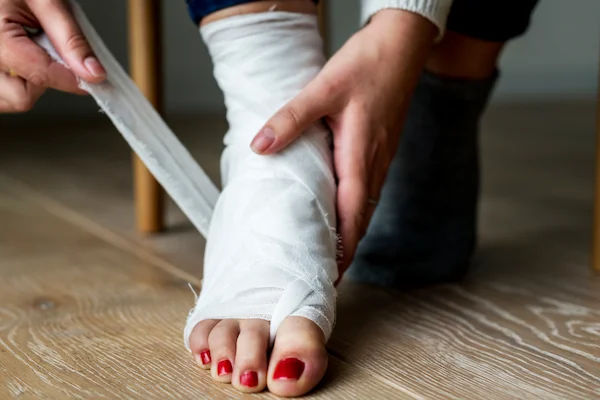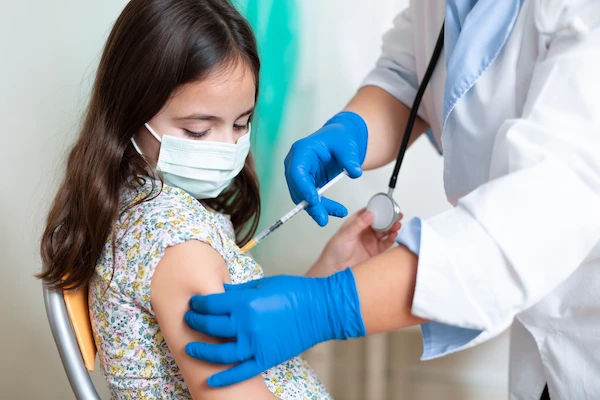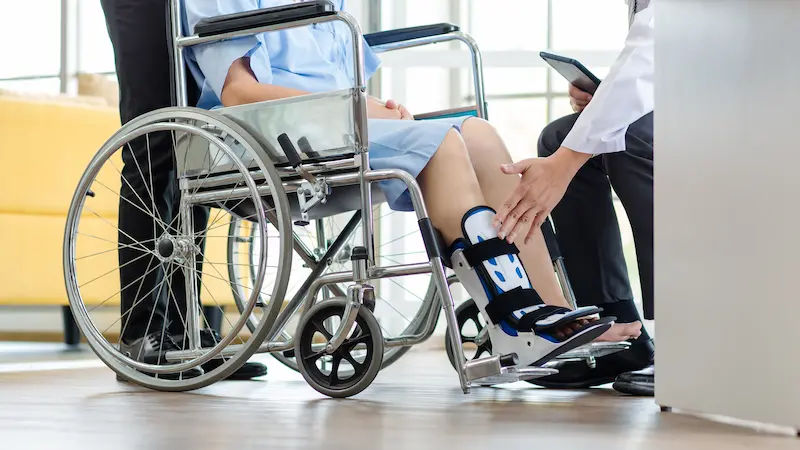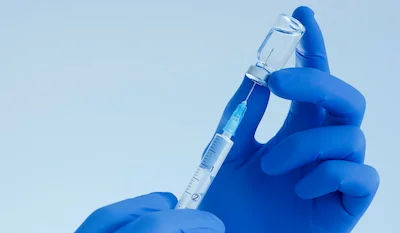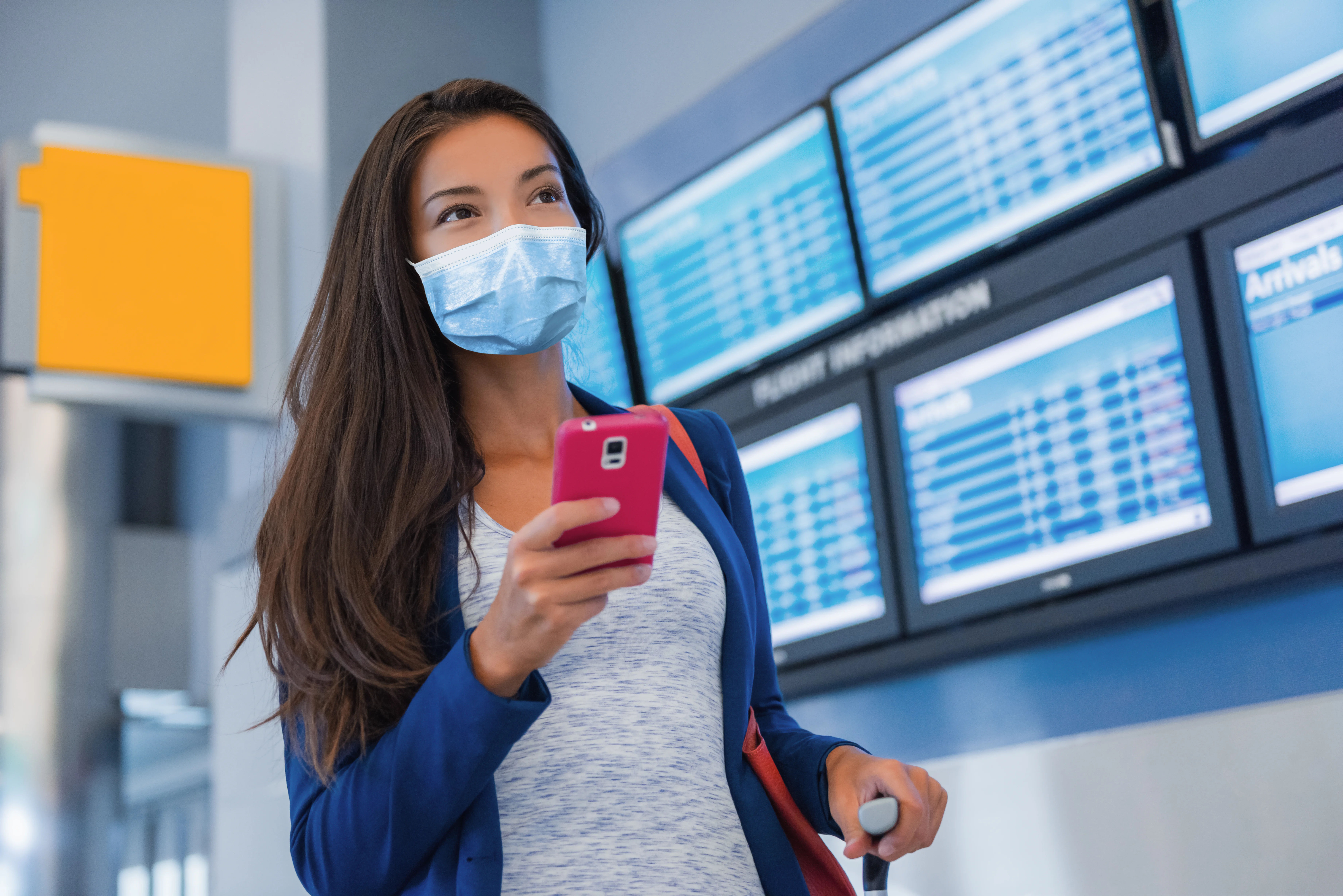Guide to Wondering Whether Dengue And Chikungunya Are Similar Diseases
Are dengue and chikungunya the same? Learn the key differences and similarities between these mosquito-borne diseases, from symptoms and transmission to treatment and prevention. Find out how to tell them apart and protect yourself.

Written by Dr. Shaik Abdul Kalam
Reviewed by Dr. Rohinipriyanka Pondugula MBBS
Last updated on 13th Jan, 2026

Introduction
Waking up with a high fever, severe body ache, and an overwhelming sense of fatigue during the monsoon season can instantly trigger alarm bells. The immediate question is often, "Is it Dengue or Chikungunya?" You're not alone in this confusion. Both are viral diseases spread by the same daytime-biting mosquito, leading to strikingly similar initial symptoms. However, mistaking one for the other can be risky, as their complications and management strategies differ significantly. This definitive guide will clear the fog, helping you understand the key differences between dengue and chikungunya, from their unique symptoms and warning signs to their diagnosis and treatment. Our goal is to empower you with knowledge so you can seek the right medical care at the right time.
Meet the Culprits: Understanding the Dengue and Chikungunya Viruses
While the mosquito is the delivery vehicle, the passengers it carries are distinct viruses that cause vastly different experiences in the human body.
The Dengue Virus (DENV)
Dengue is caused by any one of four closely related virus serotypes: DEN-1, DEN-2, DEN-3, and DEN-4. Infection with one serotype provides lifelong immunity against that specific one but only short-term immunity against the others. A subsequent infection with a different serotype increases the risk of developing severe dengue, also known as dengue hemorrhagic fever, which can be life-threatening due to plasma leakage, fluid accumulation, and shock.
The Chikungunya Virus (CHIKV)
Chikungunya is caused by a single virus, an alphavirus. The name itself, derived from the Kimakonde language, means "to become contorted," vividly describing the stooped posture of sufferers due to debilitating joint pain. Unlike dengue, there are no different serotypes that increase severity upon reinfection. Once infected, the body typically develops antibodies that are believed to provide lifelong immunity against the chikungunya virus.
The Shared Battlefield: How Both Diseases Spread
The reason these two different diseases are so often confused starts with their mode of transmission.
he Aedes Mosquito: A Common Enemy
Both dengue and chikungunya are primarily transmitted through the bite of an infected female Aedes aegypti mosquito. The Aedes albopictus (Asian tiger mosquito) can also act as a vector. The transmission cycle is simple: a mosquito bites an infected person, the virus replicates inside the mosquito, and then the mosquito transmits the virus to the next person it bites.
Peak Biting Times and Breeding Grounds
These mosquitoes are aggressive daytime biters, with peak activity in the early morning and late afternoon. They are container breeders, meaning they lay eggs in stagnant water found in plant saucers, discarded tires, water coolers, and uncovered barrels—making urban environments their perfect home.
Side-by-Side: A Symptom Comparison Chart
This chart provides a clear, at-a-glance overview of the key clinical differences.
Consult Top Specialists for Personalised Tips
Diving Deeper into Dengue Symptoms and Warning Signs
The course of dengue fever is often biphasic. After the initial 2-7 days of high fever, severe headache, and muscle pain, a critical phase can occur around the time the fever subsides.
The Critical Phase and Dengue Hemorrhagic Fever
This 24-48 hour period is crucial. Warning signs of severe dengue include severe abdominal pain, persistent vomiting, rapid breathing, bleeding gums, blood in vomit or stool, and extreme fatigue/restlessness. These signs indicate plasma leakage, which can lead to shock and organ failure. Close monitoring of the platelet count is essential during this phase, though it's not the sole indicator of severity.
When to Seek Immediate Medical Attention for Dengue
If you or a family member experience any of the warning signs above, it is a medical emergency. Immediate medical consultation is non-negotiable. If your condition deteriorates rapidly, consult a doctor online with Apollo24|7 for immediate guidance or seek emergency care.
Diving Deeper into Chikungunya Symptoms and Chronicity
For most patients, the acute phase of chikungunya is self-limiting, but the joint symptoms are its defining and most feared feature.
The Debilitating Joint Pain
The joint pain from chikungunya is often symmetrical, affecting joints on both sides of the body simultaneously. It can be so severe that it prevents people from performing daily activities like walking, holding objects, or even getting out of bed. The pain is often accompanied by significant swelling and stiffness.
Understanding Post-Chikungunya Chronic Arthritis
A significant proportion of patients (can be over 30-40%) develop chronic joint pain and arthritis that can last for several months or even years. This persistent inflammation can resemble rheumatoid arthritis and may require long-term management with anti-inflammatory medications and physiotherapy.
How Are Dengue and Chikungunya Diagnosed?
Since symptoms overlap, laboratory confirmation is key. Apollo24|7 offers convenient home collection for tests like CBC for platelet count or specific serological tests, ensuring you get diagnosed without stepping out.
Laboratory Tests and What They Detect
NS1 Antigen Test: Detects the presence of the dengue virus protein. It is most effective within the first 5-7 days of illness.
IgM ELISA Test: Detects antibodies the body produces to fight the infection. IgM antibodies appear a few days after infection and can be detected for weeks or months. This test is used for both dengue and chikungunya.
PCR Test: A molecular test that detects the virus's genetic material. It is highly accurate in the early stages of both diseases.
Treatment Approaches: Why There's No Direct Cure
There are no specific antiviral drugs to treat either dengue or chikungunya. Treatment is entirely supportive and focuses on relieving symptoms.
Managing Dengue: Hydration and Monitoring
The cornerstone of dengue treatment is adequate hydration. Oral rehydration solutions (ORS), water, and electrolytes are vital to prevent complications from plasma leakage. Pain and fever should be managed only with Paracetamol (Acetaminophen).
Managing Chikungunya: Rest and Pain Relief
Treatment focuses on relieving the severe joint pain. Rest, physiotherapy, and Paracetamol are first-line. For persistent chronic joint pain, a doctor may prescribe non-steroidal anti-inflammatory drugs (NSAIDs) after the febrile phase is over and dengue has been ruled out.
The Crucial Warning Against Self-Medication
Never self-medicate with aspirin, ibuprofen, or other NSAIDs. These drugs increase the risk of bleeding in dengue and can be harmful. Always consult a doctor for a proper diagnosis and pain management plan. If your condition does not improve after trying these methods, book a physical visit to a doctor with Apollo24|7 for a tailored treatment approach.
Preventing the Bite: Strategies to Stay Protected
Prevention is universally better than cure, especially since the same methods protect against both diseases and other mosquito-borne illnesses like Zika.
Personal Protection Measures
Use EPA-registered mosquito repellents on exposed skin.
Wear long-sleeved shirts and long pants, preferably in light colors.
Use mosquito nets while sleeping, especially during the day.
Install screens on windows and doors.
Community and Household Mosquito Control
Eliminate stagnant water sources weekly. Empty, scrub, and cover containers that hold water.
Support community fogging and larviciding initiatives.
Use larvicides in water tanks that cannot be emptied.
Key Takeaways: Quick Guide for the Worried Patient
Same Mosquito, Different Viruses: Both are spread by the daytime-biting Aedes mosquito but are caused by different viruses.
Pain is the Key Differentiator: Dengue causes deep muscle/bone pain, while Chikungunya causes severe, often chronic, joint pain.
Dengue Can Be More Acute: Watch for warning signs like severe abdominal pain, vomiting, or bleeding, which signal severe dengue and require emergency care.
Chikungunya Can Be More Chronic: Be prepared for joint pain that may last for months and require long-term management.
No Self-Medication: Use only Paracetamol for fever and pain until a doctor confirms the diagnosis. Avoid NSAIDs.
Diagnosis is Key: Lab tests (NS1, IgM) are essential to confirm which disease you have.
Prevention is Paramount: The best defense is to prevent mosquito bites and eliminate breeding grounds.
Conclusion
Navigating a sudden fever during mosquito season can be daunting, but understanding the distinct signatures of dengue and chikungunya empowers you to take informed action. Remember, while dengue demands vigilance for its potentially severe acute phase, chikungunya requires patience and management for its lingering joint effects. The critical first step, however, remains the same: do not dismiss your symptoms. Use this guide to understand the possibilities, but always seek a professional medical opinion for an accurate diagnosis and a safe, effective treatment plan. Your health is paramount, and timely intervention is the best strategy for a full recovery.
Consult Top Specialists for Personalised Tips

Dr. Anand Ravi
General Physician
2 Years • MBBS
Bengaluru
PRESTIGE SHANTHINIKETAN - SOCIETY CLINIC, Bengaluru

Dr. Harshendra Jaiswal
General Physician/ Internal Medicine Specialist
12 Years • MBBS , MD (General medicine)
Kolkata
108 DHANA DHANVANTARI Clinic, Kolkata
(25+ Patients)

Dr. Vivek D
General Physician
4 Years • MBBS
Bengaluru
PRESTIGE SHANTHINIKETAN - SOCIETY CLINIC, Bengaluru

Dr Syed Mateen Pasha
General Physician
2 Years • MBBS
Bengaluru
PRESTIGE SHANTHINIKETAN - SOCIETY CLINIC, Bengaluru

Dr. Syed Ismail Ali
General Practitioner
7 Years • MBBS
Hyderabad
Apollo 24|7 Clinic, Hyderabad
More articles from Preventive Treatment
Frequently Asked Questions
Can I get Dengue and Chikungunya at the same time?
Yes, it is possible to be co-infected with both viruses from a single mosquito bite, though it is relatively rare. Symptoms can be more severe and complex, making professional medical evaluation crucial.
Does surviving Dengue or Chikungunya make me immune?
For chikungunya, one infection typically provides lifelong immunity. For dengue, immunity is only lifelong against the specific serotype you were infected with. Subsequent infections with different serotypes increase the risk of severe dengue.
How long does the joint pain from Chikungunya last?
The acute joint pain usually subsides within 1-2 weeks. However, post-chikungunya chronic arthritis can affect a significant number of people, with joint pain and stiffness persisting for months or even years in some cases.
What is a dangerous platelet count in Dengue?
A normal platelet count ranges from 150,000 to 450,000 per microliter of blood. In dengue, counts often drop. A count below 100,000 requires close monitoring, and a rapid drop below 20,000-40,000 may increase the risk of bleeding and potentially require transfusion, but this is always decided by a doctor based on the overall clinical condition.
Are there any vaccines for Dengue or Chikungunya?
A vaccine for dengue (Qdenga) is available and approved in some countries, but its use depends on local guidelines and prior infection status. There is currently no commercially available vaccine for chikungunya, though several are in development.
